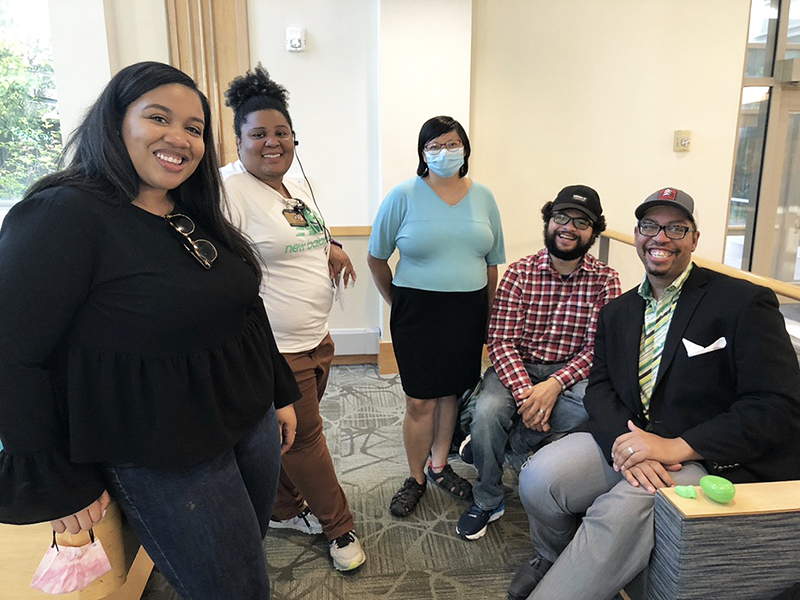The Death Of His Friend Made This Black Scientist Wanting To Find The Cure For Cancer
He had an interview with CBS, talking about the challenges that Black scientists face.


Antentor Hinton Jr. and company at Vanderbilt University/ Twitter
Growing up in Asheville, N.C., Antentor Hinton Jr. had no idea he would become a scientist, but the death of a lifelong friend inspired him to pursue science.
In 2007, during his sophomore year of college, Hinton received a phone call informing him that Cameron Underwood, a football standout and popular student who had taken Hinton, a self-described “nerd,” under his wing during a difficult school year, had died unexpectedly in his sleep.
Hinton said Underwood, who was only 18 at the time, was “extremely healthy” and had played football in college. Underwood, however, died of neuroblastoma, a malignant tumor, which means it is a cancer that can spread to other parts of the body.
Neuroblastoma is a rare cancer that starts in immature nerve cells (neuroblasts) in babies and young children. It most often affects children under the age of 5. Neuroblastoma can start in any part of the body where neuroblasts are found, but it most often starts in the adrenal glands, which are small glands that sit on top of the kidneys.
Neuroblastoma is a very complex cancer, and there are many different types of neuroblastoma. The type of neuroblastoma a child has will affect their treatment options.
Hinton later added, “I wanted to do research to develop drugs that could really help.
Hinton, now an assistant professor of molecular physiology and biophysics at Vanderbilt University, focuses on raising awareness about diversity in science in addition to his research, according to CBS, which he was interviewed about the challenges that Black scientists face.
Hinton and 51 other Black scientists published an essay in Cell, a peer-reviewed scientific publication, in March about the role of Juneteenth in science and the limitations and challenges that Black scientists confront.
In the interview, Hinton mentioned how, in his profession, where Black people make up only 9 percent of the STEM sector, Black people are often excluded from studies, such as those for heart illness, because white people often do the majority of the subjecting and research. It is less welcoming to Black, Hispanic, and Asian individuals.
Here is an excerpt from the interview:
CBS NEWS: Is focusing on diversity issues in science important for the field?
HINTON: Yes, because now scientists don’t include ethnicity as a factor in their research. So we may be studying heart disease, where we’re focused on, let’s say, dilated cardiomyopathy, but we’re focusing usually on individuals from European backgrounds. People from Latin or Asian or Black backgrounds aren’t as much included as much so there really isn’t a clear picture of the national picture.